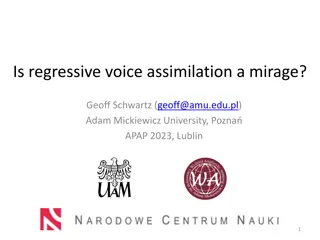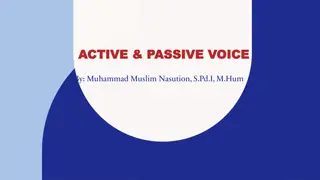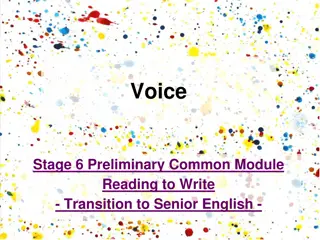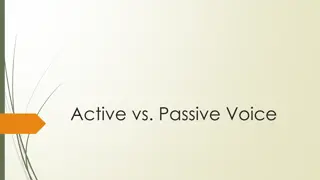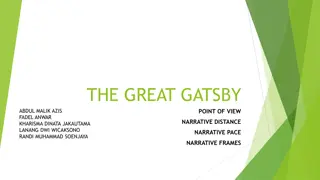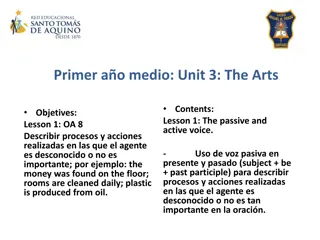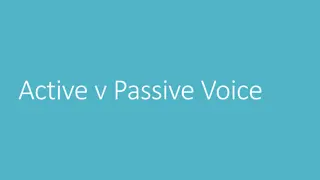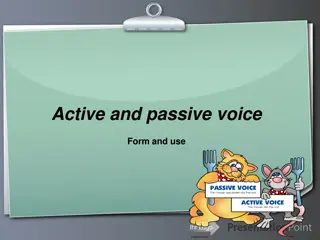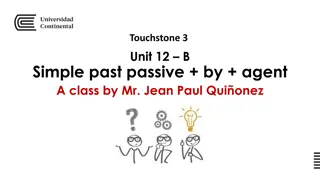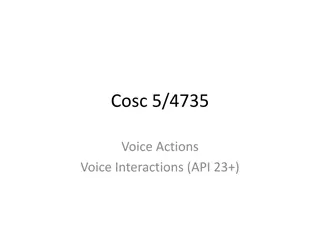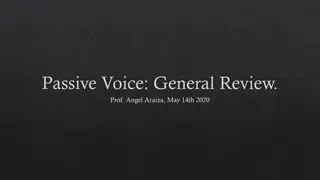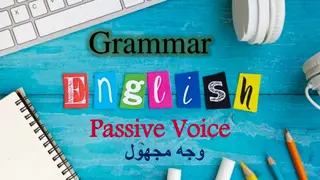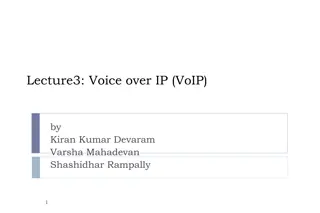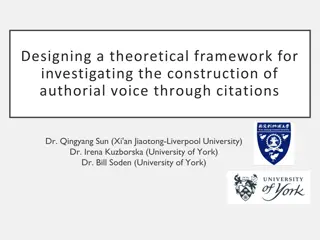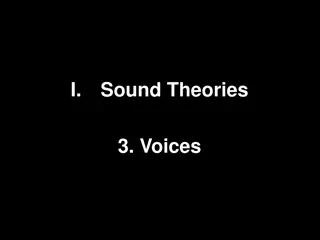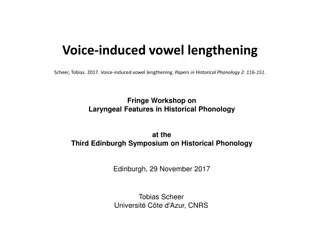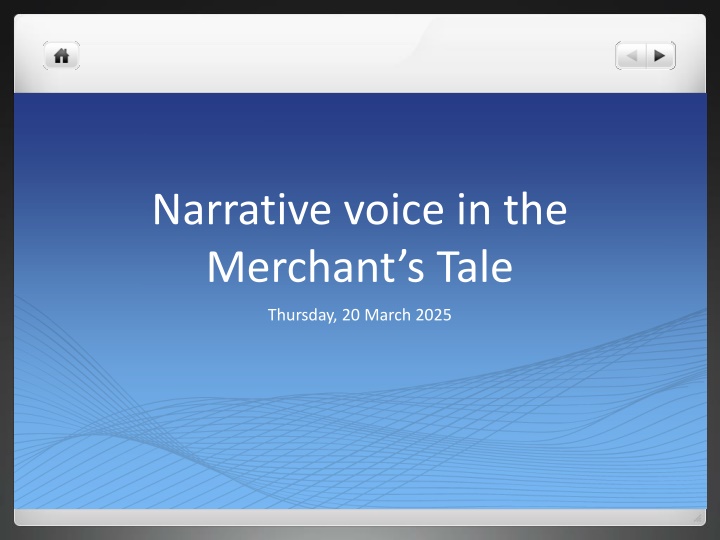
Voice Analysis in The Merchant's Tale - Chaucer's Narrative Exploration
Explore the different voices in The Merchant's Tale by Geoffrey Chaucer, analyzing the characters of the Merchant, Januarie, and Chaucer himself. Dive into the complexities of their perspectives and implications through an in-depth examination of their dialogues and narratives.
Download Presentation

Please find below an Image/Link to download the presentation.
The content on the website is provided AS IS for your information and personal use only. It may not be sold, licensed, or shared on other websites without obtaining consent from the author. If you encounter any issues during the download, it is possible that the publisher has removed the file from their server.
You are allowed to download the files provided on this website for personal or commercial use, subject to the condition that they are used lawfully. All files are the property of their respective owners.
The content on the website is provided AS IS for your information and personal use only. It may not be sold, licensed, or shared on other websites without obtaining consent from the author.
E N D
Presentation Transcript
HomeButton.png Narrative voice in the Merchant s Tale Thursday, 20 March 2025
HomeButton.png The beginning of complex literature? 14thCentury sees shift from Aural transmission to the printed word. Allows for greater subtlety in narration Elements of the Aural include the opportunity to characterize by direct speech and throw away asides by the poet. The natural voice of London can be heard in the asides: lat se now , namoore of this , Jakke fool , take hede now
HomeButton.png Layers convention General prologue Tales Within tales (speech) Narrator Chaucer as author Chaucer as author Chaucer as author Audience Chaucer as pilgrim Chaucer as pilgrim Chaucer as pilgrim Audience Pilgrim narrator Pilgrim narrator audience Character audience
HomeButton.png Whose voice do we hear? Look at the section between lines 58 and 190 the introduction of the idea of the wif Chaucer s manuscripts have few speech marks. Who is speaking? Consider the implications of each section if spoken by 1: The merchant 2: Januarie 3: Chaucer himself
HomeButton.png 1: The Merchant The Merchant s prologue has introduced the idea of his shrewe of a wife He has sworn not to bring his own story into his tale. If these are his words, how do you respond to statements like: To tak a wif, it is a glorious thing (57) or How might a man han any adversitee / That hath a wif? (126-7). What of the voice of the character?
HomeButton.png 2: Januarie If Januarie is thinking aloud, what are we to make of lines like : wyf is mannes helpe and his confort (119) or whan a man is oold and hoor; / Thanne is a wyf the fruit of his tresor (57/8) Once we have read the whole tale, can we avoid seeing the character as na ve, deluded or somehow innocent in mind? Likewise, his list of famous Biblical wives are all noted man-deceivers (you can check this for yourselves). What does this add to the telling of the story in terms of character? Is Januarie blind all along?
HomeButton.png 3: Chaucer If the tales are Aural, it might be less of a surprise to read Chaucer s own thoughts so clearly emerging. You will recall from your work on contexts that his marriage was possibly far from happy. Yet he relied on the links to Gaunt that it provided . By this time Philippa was dead, as was Gaunt and Chaucer was no longer obviously in favour. Might his bitterness (if that is what it is) emerge in the tone of a passage like this? Certainly he was far from enjoying the kind of relationships he describes here.
HomeButton.png IRONY Which ever, the sense of Irony is enhanced by a passage such as this and works at various levels. It helps to reveal the sarcastic tone of the Merchant It helps to develop Januarie into a na ve and blind man, which is vital for the notion of comedy in this tale It also helps to draw a violent contrast between his words and his lecherous intent It also allows us to comment on Chaucer as narrator he has lived a possibly unhappy life as a married man his comments on marriage may allow us a look at his own character. Or he may be asking us to sympathise with May as she is trapped in marriage with this repulsive old lecher
HomeButton.png Read carefully As much as in any 21stCentury text you should consider narrative voice as means to opening up interpretations and thinking about the text. Be prepared to look at any passage and consider the implications of narrative and how irony or comic effect may be heightened depending on the speaker. Explore

